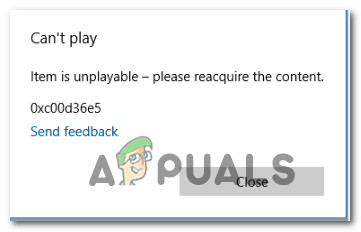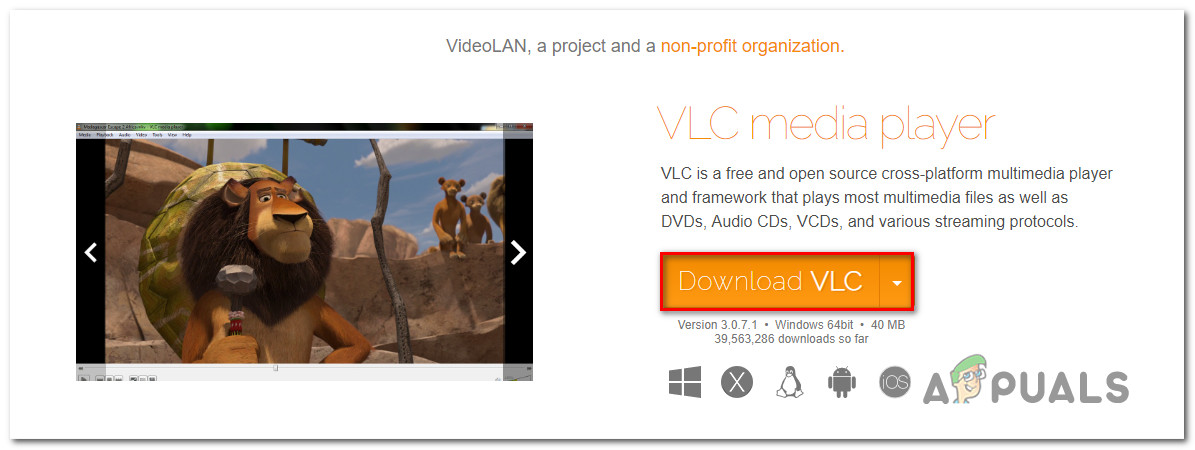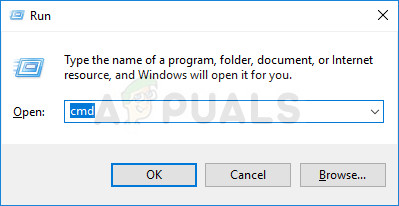How to Fix the Item Unplayable 0xc00d36e5 Error
Several Windows users have been reporting that they are unable to open certain video files (either with the default playback application or with Windows Movie Maker). The error that comes up is 0xc00d36e5 Error. As it turns out, the issue is not specific to a certain Windows version as it’s also encountered on Windows 7, Windows 8.1 and Windows 10. In most reported cases, the issue is encountered with .MOV files that are attempted to be played from a connected external drive.

What is causing the 0xc00d36e5 error?
We investigated this particular issue by looking at various user reports and the repair strategies that are commonly being used to fix this particular error message. As it turns out, several different culprits might be responsible for this error message. Here’s a shortlist of potential scenarios that might trigger this error message when opening video files:
- Windows Media player doesn’t support the file type – If you’re encountering the issue when trying to open certain files with Windows Media Player, you may be seeing the error code because the type of the file is not supported by the media playback software. In this case, you can avoid the error altogether by using a 3rd party video playback program.
- Hardware issue – A faulty USB cable or a dusted USB stick can also be responsible for this particular error code if you’re encountering this issue only when opening files hosted externally (on SD cards, external HDDs, etc.) In this case, you should be able to solve the problem by replacing the broken hardware component.
- System file corruption – Based on various user reports, this issue can also be caused by some corrupted Windows dependencies used during the playback of a video. In this case, you should be able to resolve the issue by resolving the corrupted instances with utilities like SFC or DISM.
Method 1: Opening the file with a 3rd party equivalent
Before trying any other repair strategy, keep in mind that Windows Media Player has a very limited list of supported formats. If the video file you try to open is not .MOV and you are using Windows Media Player, the issue occurs because Windows Media Player does not support the type of file that you are trying to play.
Here’s a list of files supported by Windows Media Player:
- Windows Media formats (.asf, .wma, .wmv, .wm)
- Windows Media Metafiles (.asx, .wax, .wvx, .wmx, wpl)
- Microsoft Digital Video Recording (.dvr-ms)
- Windows Media Download Package (.wmd)
- Audio Visual Interleave (.avi)
- Moving Pictures Experts Group (.mpg, .mpeg, .m1v, .mp2, .mp3, .mpa, .mpe, .m3u)
- Musical Instrument Digital Interface (.mid, .midi, .rmi)
- Audio Interchange File Format (.aif, .aifc, .aiff)
- Sun Microsystems and NeXT (.au, .snd)
- Audio for Windows (.wav)
- CD Audio Track (.cda)
- Indeo Video Technology (.ivf)
- Windows Media Player Skins (.wmz, .wms)
- QuickTime Movie file (.mov)
- MP4 Audio file (.m4a)
- MP4 Video file (.mp4, .m4v, .mp4v, .3g2, .3gp2, .3gp, .3gpp)
- Windows audio file (.aac, .adt, .adts)
- MPEG-2 TS Video file (.m2ts)
- Free Lossless Audio Codec (.flac)
If the type of file you’re trying to open with Windows Media player is not on this link, consider using a 3rd party video playback equivalent. If you want something entirely free (open source), you can use VCL – It’s free, very reliable and supports virtually any type of video file that you might try to open. You can download VCL player from this link (here).

If this method isn’t applicable and the type of file that you’re trying to open is supported, move down to the next method below.
Method 2: Verifying for a hardware issue
As it turns out judging from various user reports, this particular issue can also occur due to a hardware malfunction. A bad USB connectivity cable or a faulty USB stick can also be responsible for the 0xc00d36e5 Error.
A couple of affected users have reported that the issue was resolved after they changed the connectivity method. So if you’re encountering the issue while connecting to an external device, try to change the connectivity cable (or the USB stick) and see if you’re still encountering the same issue.
If the same error message is still occurring, move down to the next method below.
Method 3: Repair system file corruption
If none of the methods above have helped you in resolving the issue, chances are the issue is occurring due to some type of system file corruption. It’s possible that the 0xc00d36e5 Error occurs due to logic errors or some advanced corruption inside some dependencies using during video playback.
In this case, you should be able to resolve the issue by running two utilities capable of resolving system file corruption – DISM (Deployment Image Servicing and Management) or SFC (System File Checker).
For the best results, we advise you to run both built-in tools in the order presented to ensure that any repairable system file corruption is fixed. Here’s a quick guide on performing SFC & DISM scans from an elevated Command Prompts:
- Open a Run dialog box by pressing Windows key + R. Then, type “cmd” inside the text box and press Ctrl + Shif + Enter to open up an elevated CMD prompt. When you’re prompted by the UAC (User Account Prompt), click Yes to grant admin access to the CMD window.

Running Command Prompt as an administrator - Once you’re inside the elevated Command Prompt, type the following command and press Enter to run an SFC scan:
sfc /scannow
Note: Do not close the CMD window under any circumstances after you initiate the scan since you run the risk of producing further system file corruption instances. Wait patiently until the process is complete.
- Once the procedure is complete type the following command and press Enter to initiate a DISM scan:
DISM /Online /Cleanup-Image /RestoreHealth
Note: DISM relies on Windows Update to download healthy copies to replace corrupted instances. So make sure you’re connected to a reliable Internet connection.
- When the procedure is complete, restart your computer and see if the issue has been resolved once the next startup is complete.





